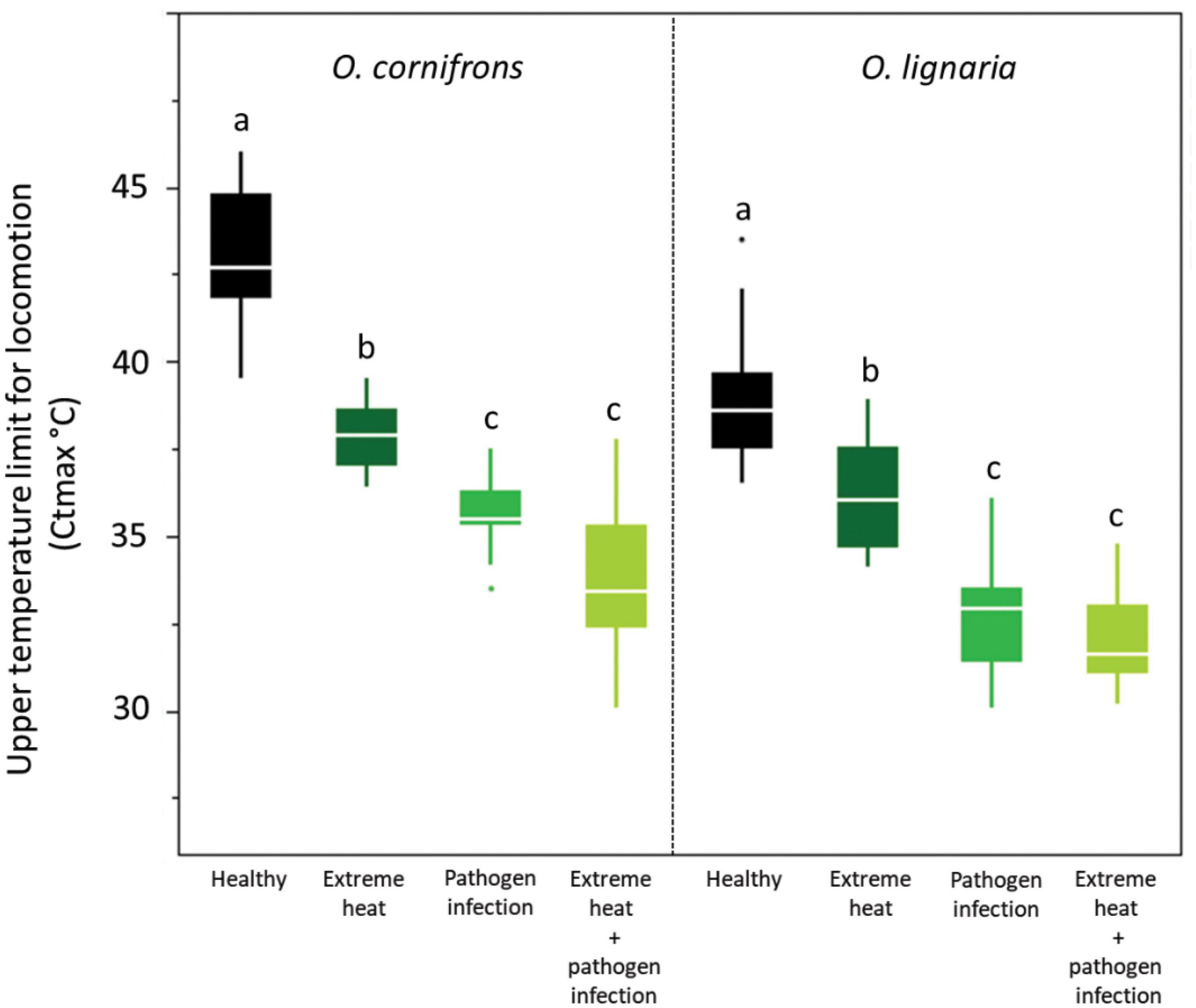2023-08-16 ペンシルベニア州立大学(PennState)
◆単独生活をするミツバチと原虫病原体の関係を研究し、極端な熱波と病原体感染の相乗効果が受粉活動に悪影響を及ぼすことが分かりました。感染ミツバチは餌探しを避け、受粉が減少し、それによって世界経済と食品安全保障に悪影響をもたらす可能性があります。この関係性の変化は気候変動の影響を理解し、対策を講じる上で重要です。
<関連情報>
- https://www.psu.edu/news/research/story/bee-populations-risk-one-two-punch-heat-waves-pathogen-infection/
- https://www.frontiersin.org/articles/10.3389/fevo.2023.1186452/full
極端な暑さが宿主と病原体の性能を変化させる
Extreme heat alters the performance of hosts and pathogen
Mitzy F. Porras,Carlos A. Navas,Gustavo A. Agudelo-Cantero,Michel Geovanni Santiago-Martínez,Volker Loeschcke,Jesper Givskov Sørensen,Sharifa G. Crandall,David Biddinger,Edwin G. Rajotte
Frontiers in Ecology and Evolution Published:09 June 2023
DOI:https://doi.org/10.3389/fevo.2023.1186452

The frequency and intensity of extreme heat in the environment have increased in the last decade. Extreme heating events (EHE) have wide-ranging impacts on biological systems from the molecular to the community level. However, the impacts of EHE have been poorly studied in pathogen–host systems. Here, we explore how EHE affects the interaction among the insect hosts, Osmia cornifrons and Osmia lignaria, and a protozoan pathogen, Crithidia mellificae. We compared changes in the upper limit for locomotion of hosts (Ctmax), thermal boldness (voluntary exposure to Extreme Temperature Zones – ETZ) between healthy and infected host exposed to EHE, and the effect of host Ctmax on pathogen growth rate. Our results showed that 1-day EHE significantly reduced the upper limit for locomotion of hosts by an average of 4 °C in healthy and 7 °C in infected hosts. Further, EHE significantly reduced the protozoan pathogen growth rate. EHE also reduced the hosts’ voluntary exposure to (or transit across) extreme (hot or cold) temperature zones (ETZ). Our results show that EHE reduces both hosts’ heat tolerance and pathogen fitness, and shed light on the implications of EHE on host–pathogen dynamics under warmer world.


